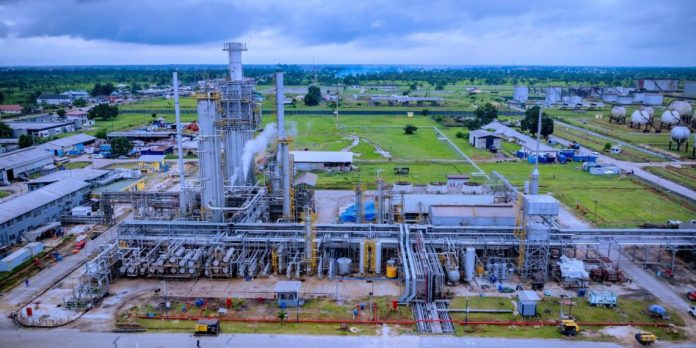The Petroleum and Natural Gas Senior Staff Association of Nigeria (PENGASSAN) confirms that the Port Harcourt Refinery has resumed production. Festus Osifo, President of PENGASSAN, announces this development during a press briefing following the association’s National Executive Council (NEC) meeting in Abuja.
According to Osifo, the refinery is now operational, producing diesel, kerosene, and petrol through its distillation unit. He attributes the successful rehabilitation to enhanced financial oversight and the active participation of unions in overseeing the project.
Reflecting on previous failed attempts to rehabilitate the facility, Osifo points to a lack of transparency and accountability as significant barriers. He commends the introduction of a steering committee, which includes representatives from PENGASSAN and the National Union of Petroleum and Natural Gas Workers (NUPENG), for ensuring transparency and effective management during the process.
While describing the refinery’s revival as a notable achievement, Osifo emphasizes that its impact on fuel prices remains limited due to the devaluation of the naira. He explains that with the exchange rate around ₦1,700 to the dollar, high production costs are inevitable, affecting petroleum product prices.
Osifo reiterates PENGASSAN’s advocacy for adopting the Nigeria Liquefied Natural Gas (NLNG) model for managing refineries. He calls on the government to partner with reputable international oil companies to bring expertise in refinery operations, potentially boosting efficiency and replicating the NLNG’s success.
The refinery’s resumption has not been without controversy. Timothy Mgbere, a leader in the Alesa community, previously accuses the Nigerian National Petroleum Company Limited (NNPCL) of misrepresenting the refinery’s operational status, claiming it is only operating at minimal capacity and not producing Premium Motor Spirit (PMS).
In response, NNPC spokesperson Olufemi Soneye dismisses these claims as misinformation, asserting that the refinery is fully operational and urging the public to disregard unfounded allegations.
The refinery’s restart represents progress in Nigeria’s push to increase local refining capacity and reduce reliance on fuel imports, though economic and operational concerns remain areas of focus.













